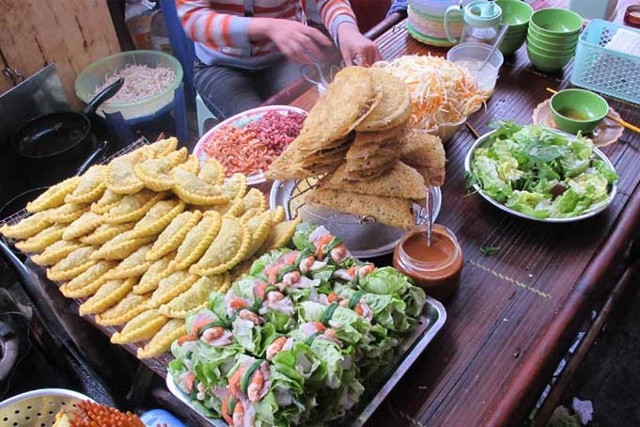Right to speak
(Baonghean) - Recently, a media campaign has been "noisy" on TV condemning the lack of food safety and hygiene - a common problem in Vietnam for a long time. What impressed me most about this campaign were the messages sent from characters representing different social groups.
 |
| Dishes prepared and sold right on the street (Internet source) |
A worker eloquently asserted: "I firmly say no to unsanitary restaurants"; a housewife holding her son's hand resolutely declared: "I will not let my family use food of unknown origin"; a business owner pledged: "My conscience does not allow me to sell products that are not safe for consumers",... Accompanying that are images of people diligently eating and drinking on the sidewalks, roadside, next to piles of garbage or puddles of wastewater; piles of rotten food dumped directly onto dirty ground to be treated with chemicals; dirty, slimy kitchens where vendors calmly prepare food to serve consumers. The messages and images of the "welcome" summer media campaign - the peak season of food poisoning cases - suddenly made me shiver.
To be honest, the fact that food establishments do not ensure hygiene quality according to the regulations of the authorities is no longer strange to all of us. In fact, people have somewhat accepted that situation as an obvious truth, a law of society. That when thinking about "eating out", people ignore the hygiene issue with the reason: if you want to be clean, eat at home. The peak is when the situation of unhygienic food, from a certain perspective, becomes a typical "cultural" feature that foreigners whisper to each other before coming to Vietnam and after leaving Vietnam often bring with them rare memories associated with food hygiene.
Street food is truly a very unique feature of Southeast Asian countries in general and Vietnam in particular. That is why famous travel magazines, websites, and reality shows around the world always mention street food that tourists cannot miss when they have the opportunity to set foot in this very "strange" and very unique part of the world. Countries with developed tourism industries in the region such as Thailand, Singapore, Malaysia, etc. all know how to take advantage of tourists' curiosity about local cuisine, turning the food business into almost an "industry", a service to serve the need to learn and enjoy culture. In that way, they have succeeded in elevating street food - a very rustic "field" - into a cultural feature that tourists admire and admire.
I think that, in order for international friends to love and respect local cuisine, the local people must first love and respect their own cuisine. That also means you respect yourself when you care about the origin, quality, and weigh the benefits and harms of the foods you are about to put into your body. The right to consumer safety - something we have long forgotten, not only shows the limitations in awareness and responsibility of business people but also a scary gap in the awareness of consumers themselves. Don't argue that dirty food is the only choice when we always have the right to refuse. So what are you doing: saying no to dirty food or saying no to your right to safety?
Hai Trieu
| RELATED NEWS |
|---|


